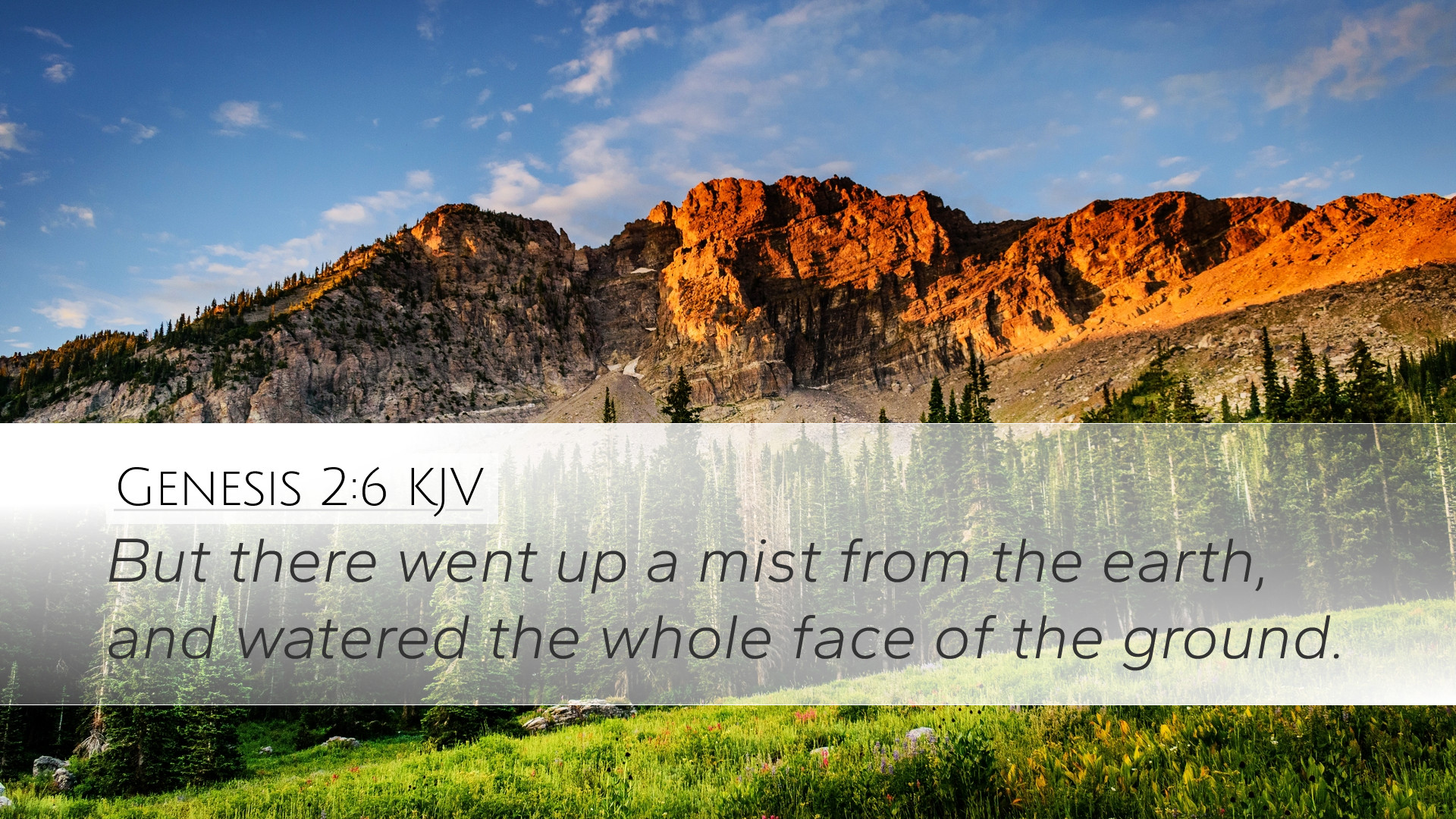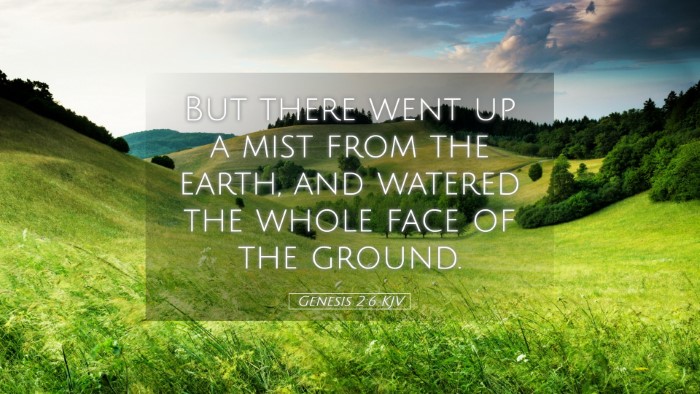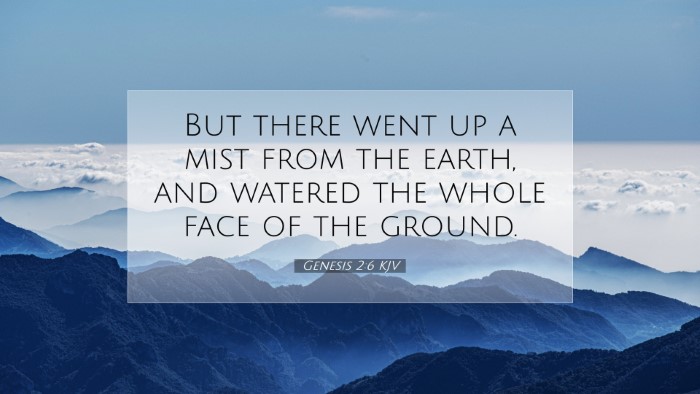Commentary on Genesis 2:6
Genesis 2:6 states: "But there went up a mist from the earth, and watered the whole face of the ground." This verse is pivotal in the creation narrative, revealing the environment and means by which God prepared the earth for the presence of man.
Contextual Overview
This scripture occurs in the midst of the second account of creation, distinct from the first narrative which spans Genesis 1. Here, we find a more intimate portrayal of God's creation method, focusing on the formation of man and the Garden of Eden.
Insight from Matthew Henry
Matthew Henry notes that the "mist" mentioned is a form of divine providence, indicating God's care in nourishing His creation even before the establishment of rain. He emphasizes that God’s methods are often indirect but always effective, preparing the ground before its inhabitants arrived.
Albert Barnes’ Perspective
Albert Barnes discusses the significance of the "mist" as a precursor to the law of nature and agriculture. He implies that this method of irrigation reflects a perfect order within creation, demonstrating God’s foresight and the nurturing aspect of His character. Barnes further articulates that this mist represents God’s continual provision for His creation, allowing the earth to thrive and flourish.
Adam Clarke's Analysis
Adam Clarke elaborates on the word "mist," suggesting it refers to a vaporous or fog-like moisture that enveloped the earth. He posits that this should not be confused with the modern understanding of rain, as the world at that time was still in a state relatively untouched by sin and curse. Clarke adds that the mention of mist instead of conventional rainfall indicates a unique and harmonious condition of the earth conducive to life.
Theological Implications
This verse raises important theological considerations about the nature of God’s interaction with creation:
- God’s Sustaining Power: The mist symbolizes God's sustaining power, showcasing how He cares for creation before creating humanity, underscoring the relationship between Creator and creation.
- Divine Preparation: The actions described indicate God's meticulous preparation for the eventual arrival of mankind. The emphasis on the earth’s nurturing conditions demonstrates God’s intention for a vibrant ecosystem.
- Foreshadowing Environmental Stewardship: This verse can be seen as a call to environmental stewardship, reminding humanity of its initial purpose to tend and care for the earth.
Literary Features
The structure of Genesis 2:6 is noteworthy; it presents a shift from the grand scale of creation in Genesis 1 to a more detailed account of the new creation process. This literary technique invites readers to engage with the text in a more personal and immediate manner.
Metaphorical Interpretations
Several scholars propose metaphorical interpretations of the mist as representing the Holy Spirit or divine presence. This allegorical reading can serve as a reminder that God's presence nurtures and sustains all life.
Conclusion
Genesis 2:6 captures a moment of divine care and preparation that resonates throughout the biblical narrative. By understanding the insights offered by Matthew Henry, Albert Barnes, and Adam Clarke, the depth of this verse in relation to God’s interaction with creation becomes increasingly clear. It symbolizes not only the provision made for the earth but also serves as an important reminder of God’s intent and purpose for humanity’s role within His creation.
Pastors, theologians, and students are encouraged to reflect upon this foundational text, recognizing both its historical significance and its implications for contemporary faith and environmentalism.


